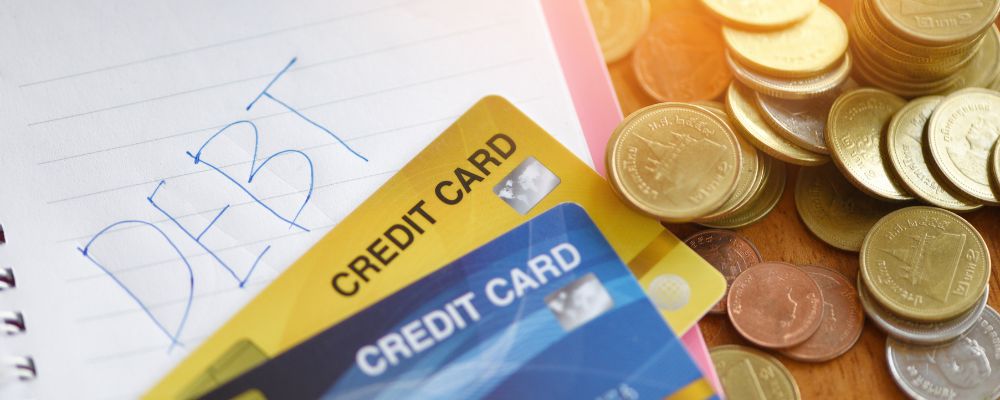
1. Understanding Credit
Before you can start building credit, it's important to understand what credit is and how it works. Credit is essentially a measure of your ability to borrow money and pay it back responsibly. Lenders, such as banks and credit card companies, use your credit score to determine how risky it would be to lend to you.
- Credit Score Components:
- Payment History (35%): Whether you pay your bills on time.
- Amounts Owed (30%): The amount of debt you’re carrying relative to your available credit (credit utilization).
- Length of Credit History (15%): How long you’ve had credit accounts.
- New Credit (10%): How many new credit accounts you’ve opened recently.
- Credit Mix (10%): The variety of credit accounts you have, such as credit cards, car loans, and mortgages.
2. How to Build Credit
Building credit takes time, but the right approach can help you establish and grow your credit score more efficiently. Here are some key steps to start:
a. Open a Credit Card or a Loan
If you have little to no credit history, one of the easiest ways to start building credit is by opening a credit account, such as a credit card or a personal loan.
- Secured Credit Card: If you're new to credit or have a low score, consider applying for a secured credit card. You provide a cash deposit as collateral, and the card issuer reports your activity to credit bureaus.
- Retail Credit Cards: Retail store credit cards often have lower approval requirements. Use them responsibly by paying off the balance each month.
b. Pay Bills on Time
Payment history is the biggest factor in your credit score, so always pay your bills on time. Late payments can significantly harm your score and stay on your credit report for up to seven years.
- Automate Payments: Set up automatic payments or reminders to ensure you never miss a payment.
- Pay at Least the Minimum: Even if you can't pay the full balance, always make at least the minimum payment on time.
c. Keep Credit Utilization Low
Credit utilization refers to the percentage of your total available credit that you're using. Experts recommend keeping your utilization below 30% to maintain a healthy credit score.
- Pay Down Balances: If you’re carrying a balance, try to pay it down to keep your credit utilization low.
- Request a Credit Limit Increase: If you have a good payment history, you can ask your credit card company to increase your credit limit. This lowers your utilization ratio if your spending remains the same.
d. Become an Authorized User
If you're new to credit or rebuilding it, becoming an authorized user on someone else’s credit card (such as a parent or spouse) can help you build credit. The primary cardholder’s responsible behavior will reflect on your credit report.
e. Diversify Your Credit
Lenders like to see that you can manage different types of credit, such as credit cards, installment loans (like auto loans), and mortgages. However, only take on debt that you can manage responsibly.
3. Managing Debt Effectively
Good debt management is key to maintaining a healthy credit score and avoiding financial stress. If not managed properly, debt can spiral out of control, leading to higher interest payments and potential damage to your credit. Here’s how to manage debt wisely:
a. Create a Debt Repayment Plan
If you're dealing with debt, the first step is to create a plan for paying it down. Two common strategies for debt repayment are:
- Debt Avalanche: Focus on paying off debts with the highest interest rate first while making minimum payments on the others. This saves the most money in interest over time.
- Debt Snowball: Focus on paying off the smallest debt first, then move on to the next smallest. This method gives you quick wins and can help keep you motivated.
b. Consolidate Debt
If you have multiple debts with high-interest rates, consolidating them into one loan with a lower interest rate may help you save money and simplify repayment. Options include:
- Debt Consolidation Loan: A personal loan used to pay off other high-interest debts.
- Balance Transfer Credit Card: Some credit cards offer 0% introductory rates on balance transfers, allowing you to pay off existing credit card debt without interest for a limited time.
c. Prioritize High-Interest Debt
High-interest debt, such as credit card debt, can grow quickly if not paid down aggressively. Focus on paying off debts with the highest interest rates first, as this will save you the most money in the long run.
d. Avoid Taking on New Debt
If you're already managing debt, avoid taking on new credit unless absolutely necessary. Every new line of credit reduces the amount of credit available and increases your overall debt load.
e. Negotiate Lower Interest Rates
In some cases, you can negotiate with your creditors for lower interest rates. If you have a history of on-time payments, call your credit card company or lender and ask for a lower rate. This can reduce the amount you owe in interest and help you pay down debt faster.
f. Use a Budget
A clear budget is one of the most powerful tools for managing debt. List all your income and expenses to ensure you have enough to cover your debt payments and essential living costs.
- Allocate Funds to Debt Repayment: Dedicate a portion of your income specifically to paying down debt.
- Cut Non-Essential Expenses: Look for areas where you can reduce spending and redirect that money toward debt payments.
4. What to Avoid When Building Credit and Managing Debt
- Late or Missed Payments: Missing even one payment can seriously harm your credit score.
- Maxing Out Credit Cards: Using too much of your available credit can lower your score and lead to high-interest charges.
- Applying for Too Much Credit at Once: Each time you apply for credit, it results in a hard inquiry on your credit report, which can temporarily lower your score. Multiple applications in a short period may raise red flags for lenders.
- Ignoring Debt Problems: If you're struggling with debt, don’t ignore it. Reach out to creditors or a financial advisor to explore debt management options.
5. Building Credit While Managing Debt: Balance is Key
It's possible to build credit while managing debt, but it requires a careful balance. While you want to show that you can use credit responsibly, it’s important not to take on too much debt at once.
- Use Credit Cards Wisely: If you're working on building credit, make small purchases that you can easily pay off each month. Avoid carrying a large balance.
- Stay Consistent: Consistency is key in both building credit and paying off debt. Regularly paying bills on time, keeping debt levels low, and maintaining healthy credit habits will improve your credit score over time.
